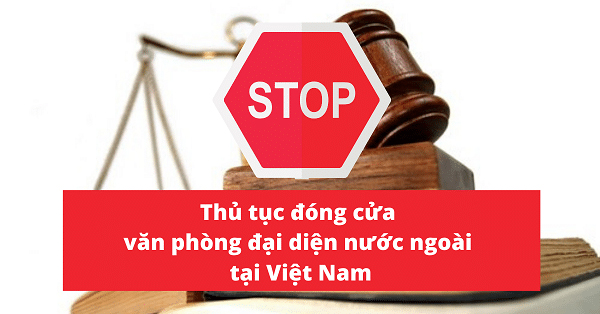Content Summary
In the era of globalization, the cooperation activities between Vietnamese organizations and individuals with foreign organizations and individuals are increasing and are agreed upon through international commercial contracts. However, when these relationships fail or the rights of the parties are violated, it will lead to disputes. So what is the procedure for the settlement? What law is applied to solve the dispute? Which authority has jurisdiction? AZLAW will answer all these questions in this article.
What is a contract involving foreign elements?
According to the provisions of civil law in Vietnam, a contract is an agreement between parties in relation to the establishment, modification, or termination of civil rights and obligations. A contract involving foreign elements is a contract in any of the following cases specified in Article 663 of the 2015 Civil Code:
- At least one of the participating parties is a foreign individual or legal entity;
- The participating parties are Vietnamese citizens or legal entities but the establishment, modification, implementation, or termination of such relation happened in a foreign country;
- The participating parties are Vietnamese citizens or legal entities but the subject matter of such civil relations is located in a foreign country.
When does a dispute related to contracts involving foreign elements arise?
A contract involving foreign elements must have at least one of the participating parties who is a foreigner. In case participating parties are Vietnamese citizens or legal entities, the establishment, modification, implementation, or termination of such relations happened in a foreign country or the subject matter of such civil relations is located in a foreign country.
Disputes relating to contracts with foreign elements arise when one of the parties fails to perform or performs improperly or inadequately the obligations of a contract involving foreign elements and must compensate for the damage.
The settlement of dispute related to contracts involving foreign elements
In Vietnam, the ways to resolve disputes related to contracts involving foreign elements include Negotiation, Conciliation, Arbitration, and Court.
Resolution by negotiation:
Negotiation is the first method used to resolve disputes. Most traders prefer to apply this type of settlement because it can save time, effort, money, and ensure the legitimate rights and interests of the parties in the commercial relationship.
Currently, there is no domestic law regulating the negotiation on resolving disputes related to contracts with foreign elements. However, negotiation can be agreed upon in writing.
Resolution by conciliation:
Commercial mediation is chosen when the parties agree in the contract or in other separate written agreements. In this method, a third party acts as a conciliation mediator who supports and guides the two parties to resolve the dispute.
Resolution by negotiation and conciliation has the following advantages and disadvantages:
+ Advantages:
Resolving disputes by negotiation and conciliation is simple, fast, low-cost with flexible procedures.
If the disputes are resolved successfully, it still does not cause any antagonism between the parties, so the possibility of cooperation between the parties can be maintained.
Keeping the reputation and business secrets of each party. Moreover, because the parties agree on the method of settlement, the parties usually voluntarily and seriously implement them.
+ Disadvantage:
The settlement method is proposed by the parties, so the implementation depends on the self-discipline of each party. Therefore, there are no measures and enforcement authority applied for the parties when they do not perform the agreement.
Because the parties agree by themselves, it is easy for one party to take advantage of the agreement to prolong the other’s time, which affects the statute of limitations for initiating a lawsuit when the two parties cannot negotiate or reconcile.
For conciliation with the participation of a third party, it requires the conciliation mediator who has qualifications and knowledge of law and practice. Moreover, the outcome of conciliation depends on the objectivity of the mediator.
Resolution by Arbitration:
Resolving disputes by commercial arbitration is only applicable to contracts related to commerce. If the contracts are related to ordinary civil issues, it is not possible to choose this type of dispute settlement method.
When choosing commercial arbitration to settle disputes, the parties must satisfy the condition that there is an agreement on the selection of arbitrators to settle disputes.
When choosing commercial arbitration for settlement, the parties can choose an arbitration center, an arbitrator, and applicable law. An arbitral award is equivalent to a court judgment or decision, so the parties must perform their obligations according to the arbitral award.
Commercial arbitration is settled on the principle of a one-time trial and the arbitrator’s award is final which cannot be appealed or protested against according to the provisions of the Civil Procedure Code.
Resolution by arbitration has the following advantages and disadvantages:
+ Advantages:
Arbitration procedures are simple, fast, which saves time and money for the parties.
The Arbitrator’s decision is a final decision, so it is binding on the parties (the parties cannot appeal the decision).
The right to appoint arbitrators helps the parties to choose a good, experienced and knowledgeable arbitrator, which makes resolving disputes quickly and accurately.
The non-public trial will help the parties limit the disclosure of business secrets and maintain the reputation of the parties in the market.
+ Disadvantages:
The enforcement of the Arbitrator’s decisions is not strict because the Arbitrator does not represent the judicial power of the state.
The success of resolving disputes by arbitration depends on the attitude and cooperation of the disputing parties.
Arbitration is not a state authority, so it is difficult to verify, collect evidence, summon witnesses, apply interim urgent measures or decision enforcement measures.
Resolution by Court:
Resolving disputes related to contracts involving foreign elements is under the jurisdiction of the People’s Court in accordance with the provisions of the Civil Procedure Code 2015.
Resolution by Court has the following advantages and disadvantages:
+ Advantages:
The court is a judicial authority of the state, so its judgments and decisions are guaranteed to be enforced by the coercive power of the state. After the judgment or decision takes effect, the judgment enforcement agency which has adequate apparatus and means shall execute such judgment or decision.
The court settlement with many levels of trial shall ensure the accuracy, fairness, objectivity, and legality of judgment or decision.
Court is a state authority, so it has the competence in collecting evidence, summoning witnesses, and applying interim urgent measures during the trial.
Court fee is lower than Arbitration fee
+ Disadvantages:
It takes a lot of time and effort for the parties involving in the proceedings.
The open trial will make it difficult for the parties to protect their business secrets or reputation during and after the trial.
Which country’s law will apply to resolve the dispute?
According to Article 664 of Civil Code 2015, the determination of law applying to civil relations involving foreign elements is as follows:
- The international agreements to which the Socialist Republic of Vietnam is a signatory or Vietnamese law shall apply to civil relations involving foreign elements.
- In case the international agreements to which the Socialist Republic of Vietnam is a signatory or a Vietnamese law stipulate that contracting parties have the right to select applied law, the law applied to civil relations involving foreign elements shall be determined according to the selection of the contracting parties.
- If it fails to determine the applied law as prescribed in Clause 1 and Clause 2 of this Article, the applied law is the law of the country that closely associates with the civil relations involving foreign elements.
The consulting service for the resolution of contract disputes
- Consulting on the strategy to resolve contract disputes in the most beneficial way for customers.
- Drafting documents requesting the client’s partner to perform work related to the content of the contract dispute.
- Assigning an attorney to participate in meetings, or negotiations as the client’s attorney to quickly resolve contract disputes.
- Advising customers on procedures and documents to file the lawsuit to court or arbitration to resolve disputes.
- Acting as an authorized representative or a lawyer to protect the legitimate rights and interests of the client in court or arbitration.
- Other services related to economic contract disputes at the request of customers
If you have any questions, please contact us for advice and legal support










